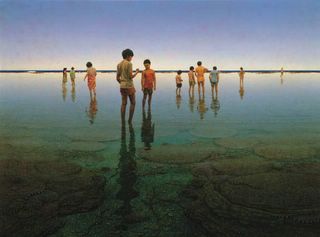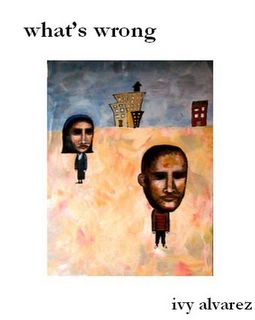Raising (minor) Poets
I’ve been accused of popularity. I plead not guilty, but a jury of my peers must eventually decide. For the prosecution Bino and A.D. I speak to you, pro se. (“A defendant that represents himself has a fool for a client”. Anonymous.)
This is my case: Contrary to what many might believe the comments on my blog are “pushed up” because I reply to each commenter with an individual comment. If you divide the comments by two, members of the jury, you will find that I am not popular at all. It is not true that the bilingual thing raises the comment count. It is the trilingual thing that raises the count. I have one dear commenter, Aquí, who is a fine poet in the making, I might add, that I have discovered by my little self, that comments in Galician. That’s my mother tongue and although Aquí cannot speak English, he/she arms hir self with a dictionary to try and make me feel good. A nice person that Aquí. Unfortunately shi doesn’t comment often enough because hir’s too busy coming up with great metaphors. True that others, Bino and C. Dale, have commented in Spanish, but their very desire to comment in such a romantic language makes my case. Ask Neruda. (See, attached, Exhibit I.)
But my final defense shall be through the recited word. This is the only poem you shall read from me in this blog. So you must read it, members of the jury. You must read it all, out loud. It will hurt some sensibilities and if it weren’t so Frostian even C. Dale would pick it up for NER. Be brave folks, if Donald Justice can play why can’t I? (Sorry but I can’t do anything about the format on this blogger popular thing.) All is, of course, in good fun :-). I’m innocent, I swear. Just in case I plead mental insanity: Little Fucking Emerson did it.
Raising (minor) Poets
Troops of poets run amok causing problems of pest control
and, later, serious spread of disease from overcrowding
(though it cleared the place of rats and vermin of the kind
that found poets gnawing on the wood of the fascia and the eave
barely visible from the creek—to see one dawn,
or was it a sunset reflected on the wall?)
Mind you, I’ve raised rats before;
all they gnawed was without cruelty.
Not worth catching and caging one of them or pairing two
should they proliferate and later think that they could sing
of heather blooming on my field to the mountain on the edge…
…imagine then the cacophony of distress
on a once quiet everlasting meadow.
By Little Fucking Emerson











